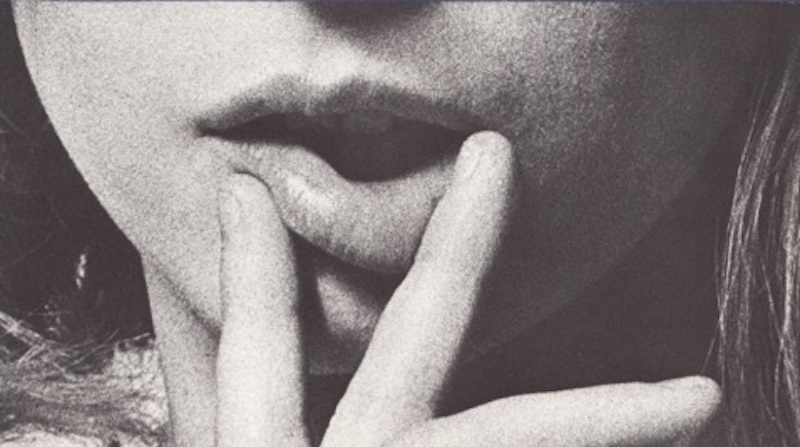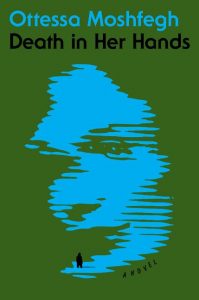
This week’s quintet of quality reviews includes Jennifer Szalai on John Bolton’s The Room Where It Happened, Lauren Groff on Kent Russell’s In the Land of Good Living, Sarah Gerard on Emily Temple’s The Lightness, Kevin Power on Ottessa Moshfegh’s Death in Her Hands, and Roger Rosenblatt on Roddy Doyle’s Love.
“Known as a fastidious note taker, Bolton has filled this book’s nearly 500 pages with minute and often extraneous details, including the time and length of routine meetings and even, at one point, a nap. Underneath it all courses a festering obsession with his enemies … The book is bloated with self-importance, even though what it mostly recounts is Bolton not being able to accomplish very much. It toggles between two discordant registers: exceedingly tedious and slightly unhinged … His one shrewd storytelling choice was to leave the chapter on Ukraine for the end, as incentive for exhausted readers to stay the course … In another book by another writer, such anecdotes might land with a stunning force, but Bolton fails to present them that way, leaving them to swim in a stew of superfluous detail … his chapter on Ukraine is weird, circuitous and generally confounding. It’s full of his usual small-bore detail, but on the bigger, more pointed questions, the sentences get windy and conspicuously opaque … When it comes to Bolton’s comments on impeachment, the clotted prose, the garbled argument and the sanctimonious defensiveness would seem to indicate some sort of ambivalence on his part—a feeling that he doesn’t seem to have very often.”
–Jennifer Szalai on John Bolton’s The Room Where It Happened: A White House Memoir (The New York Times)
“To try to understand this most incomprehensible state, we need varied and probing narratives, ones that change as Florida changes and are told by people who love the state too deeply to refrain from blistering criticism. Into this role steps the native South Floridian memoirist Kent Russell with his sharp, brilliant, mean, and exasperating hybrid book … By exasperating, I mean that I’ve never read an account of our gorgeous and messed-up state that is a more appropriate match of form and function. Russell’s book is a braid of diverse strands that shouldn’t work together and yet do … Russell excels at…delightful nutshell histories, many of which involve a measure of both peril and con-artistry. The backstories of air-conditioning, hurricanes, orange cultivation, Walt Disney, and Miami, in Russell’s telling, all feature some element of wildly ambitious delusion and/or a hair’s-breadth escape from disaster … Russell is at his best when he offers cultural commentary, dropping his gonzo persona and becoming wickedly insightful … What undergirds Russell’s narrative of Florida is despair as invisible, dark, and pervasive as the limestone bedrock that sits beneath the state. To me, this feels like both the real and the true story of Florida … As Russell puts it in his hilarious gut punch of a book—a book that anyone who is interested in not only Florida, but the whole country, should read—’How long before a society of atomized individuals rightfully following only their desires, heedless of what they owe others, destroys itself?'”
–Lauren Groff on Kent Russell’s In the Land of Good Living: A Journey to the Heart of Florida (The Atlantic)
“It’s only right for a book that probes the inner reaches of consciousness to be set in the mountains, where the air is thin and the body is lighter … It’s a teen thriller in the vein of the ’90s horror movie The Craft, only instead of a Los Angeles high school this one is set at what Olivia calls ‘Buddhist Boot Camp for Bad Girls.’ But it’s also a beautiful meditation on meditation, with readings of sacred texts and light Buddhist history, populated with girls who refuse to act the way they’re expected to; who have too much passion, too many feelings and nowhere to put them; who are on the cusp of adulthood, ‘waking up to the true nature of things,’ fragile as they are smart and naïve as they are reckless. They yearn to know how they can shape their own reality even as they’re learning (as Olivia imagines her father would say) that ‘reality is a construct, consciousness an illusion.’ Friendships, too, prove to be illusions, as that between the girls fractures and frays, exposing the aching need at the center of each individual’s ambitions. This book—frequently hilarious, and thoughtful throughout—also transcends expectations at its end.”
–Sarah Gerard on Emily Temple’s The Lightness (The New York Times Book Review)

“Moshfegh knows that when human company is swept away, a baroque inner life can often flourish, and Vesta’s increasingly monstrous inner life grows to occlude her view of the world … There are the usual games of form and narration, but they are made to operate in the service of Moshfegh’s real subject, which is the final inability of fiction to redeem a maimed life. Death in Her Hands is not a murder mystery, nor is it really a story about self-deception or the perils of escapism. Rather, it’s a haunting meditation on the nature and meaning of art … This is what artists do, of course: they reclaim meaning from the accidents of experience, or try to. In the fact that Vesta’s efforts are finally eroded by paranoia and loneliness—in the fact that the Magda mystery, founded entirely on red herrings, turns out to be the biggest red herring of them all—lies the almost unbearable message of this brief, bleak book. Death in Her Hands is the work of writer who is, like Henry James or Vladimir Nabokov, touched by both genius and cruelty. Cruelty, so deplorable in life, is for novelists a seriously underrated virtue. Like a surgeon, or a serial killer, Moshfegh flenses her characters, and her readers, until all that’s left is a void. It’s the amused contemplation of that void that gives rise to the dark exhilaration of her work—its wayward beauty, its comedy, and its horror.”
–Kevin Power on Ottessa Moshfegh’s Death in Her Hands (The New Yorker)
“When I tell you that Roddy Doyle’s new novel, Love, is about two 50-ish men talking well-oiled talk in a pub, you’ll say you’ve heard that one before. You haven’t. When I tell you that the novel isn’t so much about what happens, or happened once upon a time, as it is about the mystically inaccurate nature of language, you’ll say you learned that lesson long ago. You didn’t, at least not the way Doyle spins it. When I tell you that in spite of these familiarities, you’ll wind up caring about a bond that seems to rely mainly on words, you’ll say you won’t. You will … There’s a lot of Joyce in this novel—not the layered density of Ulysses or Finnegans Wake, but the layered simplicity of Dubliners, in the straightforward yet incantatory sentences, and in the loading of simple words … In Love, some of the best language is silence … Maybe a theme hiding in this novel is that men are not as awful at communicating as we, and women, say we are. There may be as much truth in awkwardness and evasiveness as there is in openness and clarity—the truth latent in floundering, in not being able to say what we mean (must we?) because we haven’t the foggiest idea what we mean.”
–Roger Rosenblatt on Roddy Doyle’s Love (The New York Times Book Review)

